Die wichtigsten Neuerungen
Bleiben Sie informiert für Ihr Unternehmen
Leistungsstark & Made in Germany
Zuverlässige Cloud-Lösung auf höchstem Niveau
Mehr als 600.000 Anwenderinnen und Anwender aus verschiedenen Branchen vertrauen bereits DRACOON, dem zertifizierten Marktführer für sicheren Dateiaustausch.
Mit Dracoon schützen Sie alle sensiblen Daten in Ihrem Unternehmen vor unbefugtem Zugriff und unterstützen bei der Einhaltung gesetzlicher Vorschriften, wie DORA, KRITIS, NIS-2 oder DSGVO.
DRACOON lässt sich superbequem in Ihrem bestehenden IT-System integrieren und ist mit höchsten Sicherheitsstandards nach BSI C5 Typ 2 ausgestattet.
DRACOON ist die Cloud-Lösung für jede Branche
Diese Firmen vertrauen bereits auf DRACOON
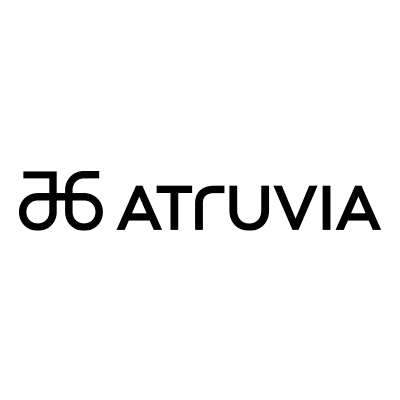


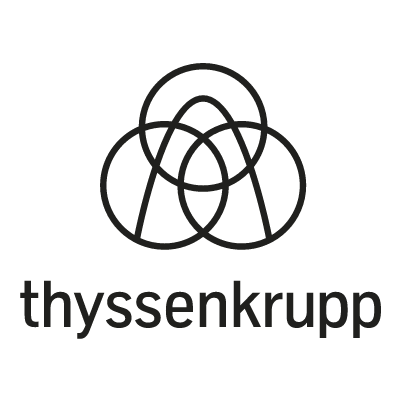
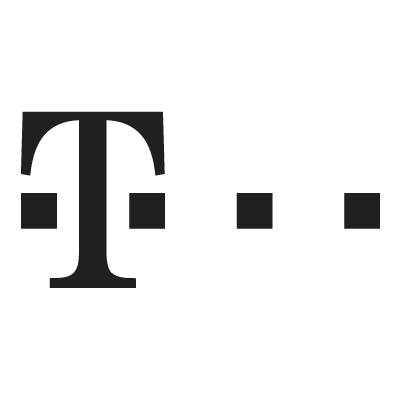
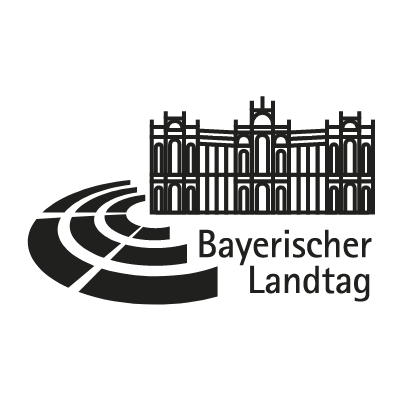


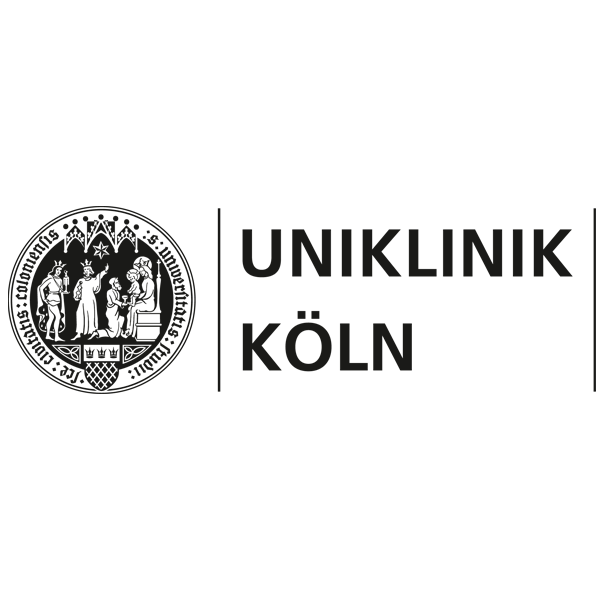
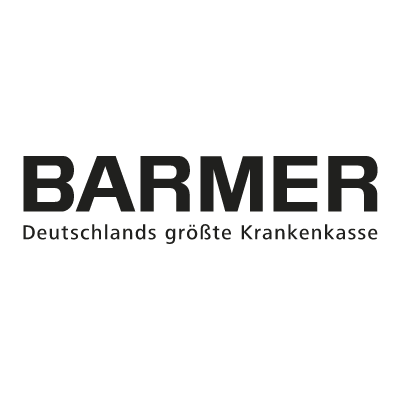
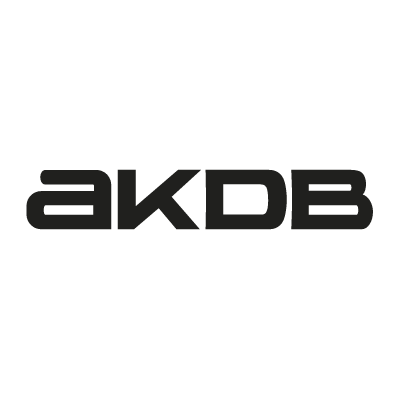
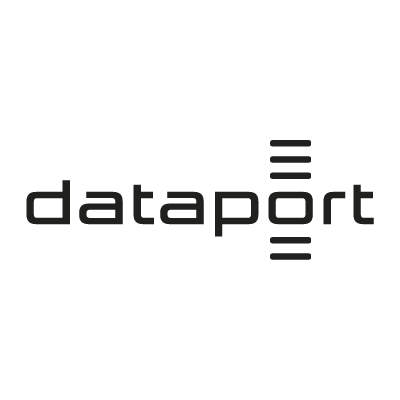
Speichern, teilen & gemeinsam bearbeiten
Zusammenarbeit & Dateiaustausch ohne Umwege
Optimieren Sie Ihren Arbeitsalltag durch die Vielseitigkeit des zentralen Dateimanagements – von effizienten Arbeitsprozessen bis zum mühelosen Teilen und Verwalten von Dateien.
-
Einfacher Austausch großer Dateien via Freigabelinks und Outlook Add-In
-
Sichere und zentrale Speicherung aller Dateien und Informationen im Unternehmen
-
Datei-Versionierung für übersichtliches und gemeinsames Bearbeiten von aktuellen Dokumenten
-
Plattform- und geräteunabhängiger Dateizugriff für flexibles Arbeiten von überall
- Benachrichtigungen zu Dateiaktivitäten für Transparenz und verbesserte Workflows
Zertifiziert & DSGVO-konform
Sicherheit & Compliance ohne Kompromisse
Mit der ganzheitlichen DRACOON Cloud-Lösung behalten Sie nicht nur die Kontrolle über Ihre Dateien, sondern Sie erfüllen auch gesetzliche Vorschriften und Compliance-Richtlinien – komplett ohne eigenen Aufwand.
- Ende-zu-Ende-Verschlüsselung für die absolute Sicherheit Ihrer Daten und E-Mails
- Starke Multi-Faktor-Authentifizierung für höchste Account-Sicherheit und Schutz vor Cyberattacken
- Auditing für nachvollziehbares und revisionssicheres Monitoring
- Feingranulares Rechtemanagement für kontrollierten Zugriff und mehr Datensicherheit
"Ausgezeichnet", sagen auch andere
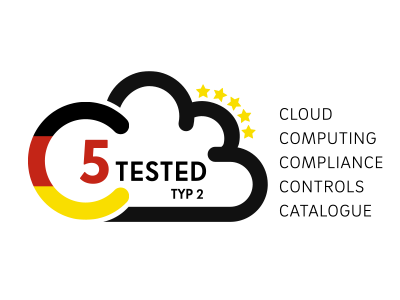

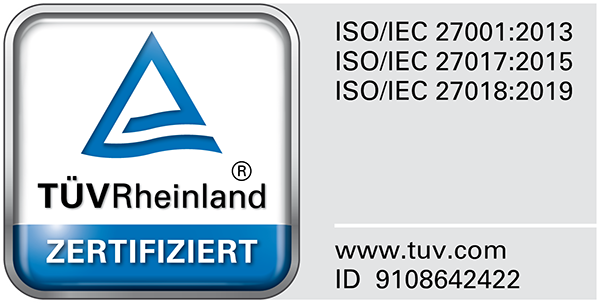
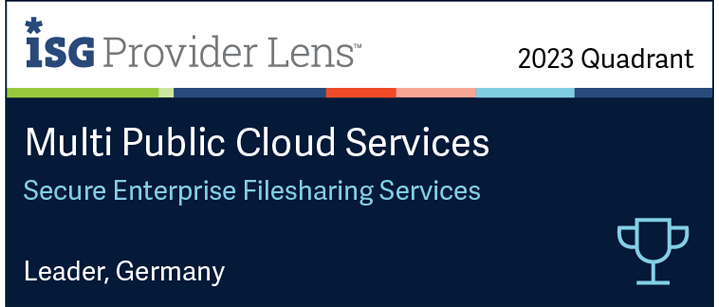

Skalierbar, zuverlässig & Smart
Administration mit vollständiger Kontrolle
Intuitive und einfache Benutzeroberfläche für Administratoren mit einfacher Verwaltung, umfassenden Kontrollmöglichkeiten und detaillierter Nutzereinsicht – natürlich mit konstanter Stabilität und Verlässlichkeit des DRACOON-Services.
- Rollenbasiertes Rechtemanagement für ressourcenschonende Administration
- Maximale Skalierbarkeit bei steigenden Anforderungen
- Universelle API für nahtlose und schnelle Integration in bestehende Systeme
- Zuverlässiger Kundensupport für eine schnelle und kompetente Problembehebung
Compliance-Partner und Experte für sicheren Dateiaustausch
Überzeugen Sie sich gerne selbst und buchen Sie jetzt einen kurzen Termin mit uns. Wir zeigen Ihnen gerne, wie DRACOON Ihnen beim sicheren und DSGVO-konformen Dateiaustausch helfen kann.
.webp?width=764&height=483&name=SDR-Team%20(1).webp)




















